Letter to the U.S. Congress and to a couple of representatives regarding a political issue related to Bolivia.
August 16, 2019
United States Senate- Washington D.C. 20515
Members of the U.S. Senate,
We write as academic specialists on Bolivia (and Latin America) prompted by Senate Resolution 35 passed unanimously on April 10 on the 1st Session of the 116th Congress. “Supporting democratic principles and standards in Bolivia and throughout Latin America,” aimed at opposing Evo Morales´ candidacy in upcoming presidential elections in October.
We are an international community of scholars, including a large number of U.S. citizens, working on Latin American affairs in programs and university centers throughout the U.S., Canada, Latin America, Europe and the rest of the World. We believe that issues such as peace, prosperity, productive economies and environmental protection throughout the hemisphere require strong independent democracies.
Latin America, especially South America, has made important progress in overcoming its status as the most unequal region in the world, resulting in part from the colonization imposed by foreign powers and the relegation of its indigenous peoples to centuries of servitude and second-class citizenship. In this context, the historical interference by the U.S. in its politics and economies for more than a century has not always been in this country’s best interests.
Bolivia can also be seen as an emblematic case. After Cuba and Central America, it has been the object of sustained U.S. interference. But it is Bolivians, and only Bolivians, who should have the right to decide on their government and internal affairs through their own political actions and their right to demand needed changes in policies and practices. The only legitimate demand by the U.S., and one that we agree on, is for inclusive, transparent elections and respect for the electoral results.
We urge the U.S. Senate to issue an unequivocal statement that it will not support either direct U.S. interference in Bolivian elections or make efforts to influence voters, destabilize the electoral process, nor abet nor tolerate efforts by Bolivians to use U.S. actors and institutions for their own partisan purposes. Further, we encourage the Senate to invite Bolivian leaders, present and future, to negotiate a new era of bilateral relations based on mutual respect and cooperation.
Signed,
Martin Mendoza-Botelho Chair, Bolivia Section – Latin American Studies Association
Tathagatan Ravindran, Universidad Icesi
Taylor Marie Doherty, University of Massachusetts Amherst
Leah Walton, University of North Carolina Charlotte
Bruce Mannheim, University of Michigan
S. Elizabeth Penry, Fordham University
Elizabeth Shesko, Oakland University
R. Matthew Gildner, Ph.D., Washington and Lee University
Sarah Hines, University of Oklahoma
Linda Farthing, independent researcher
Nancy Postero, University of California San Diego
Chris Krueger, retired researcher
Henry Veltmeyer, Saint Mary's University
Kathryn Lehman, The University of Auckland
Tom Perreault, Syracuse University
James Almeida, Harvard University
Pedro Mendes Loureiro, University of Cambridge
Julia Brown, University of California, Santa Barbara
Aaron Augsburger, University of South Florida
Kevin A. Young, University of Massachusetts Amherst
Emily Achtenberg, NACLA Contributing Editor
Nell Haynes, Colby College
Clayton M. Cunha Filho, Universidade Federal do Ceará
Replies or corresponding documents can be sent to:
Professor Martín Mendoza-Botelho Department of Political Science, Eastern Connecticut State University 83 Windham Street. Webb Hall, Room 355. Willimantic, CT 06226
[1] This declaration was approved by the membership of the Bolivia Section of the Latin American Studies Association (LASA) currently with 115 members. A total of 38 members voted (33% of the Bolivia Section’s members), out of them 31 approved this letter (88.6%). This is not a political declaration of the Association of Latin American Studies, that neither supports nor rejects the declaration expressed above.
